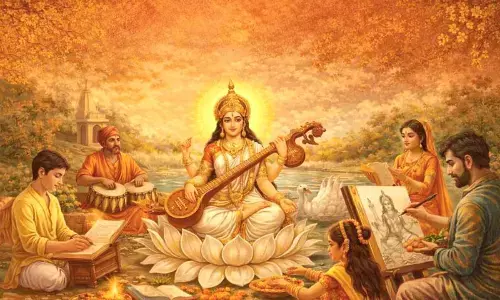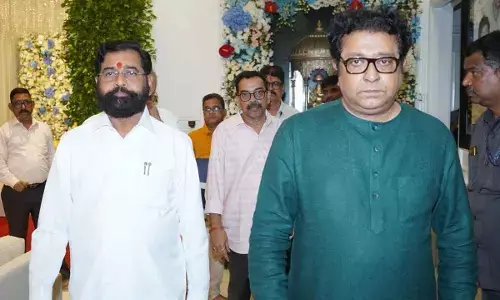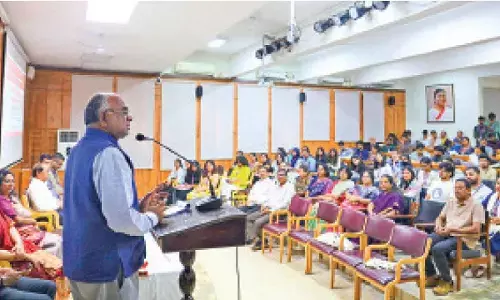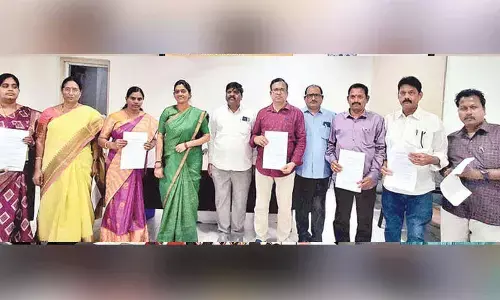Various dynamics of intelligence
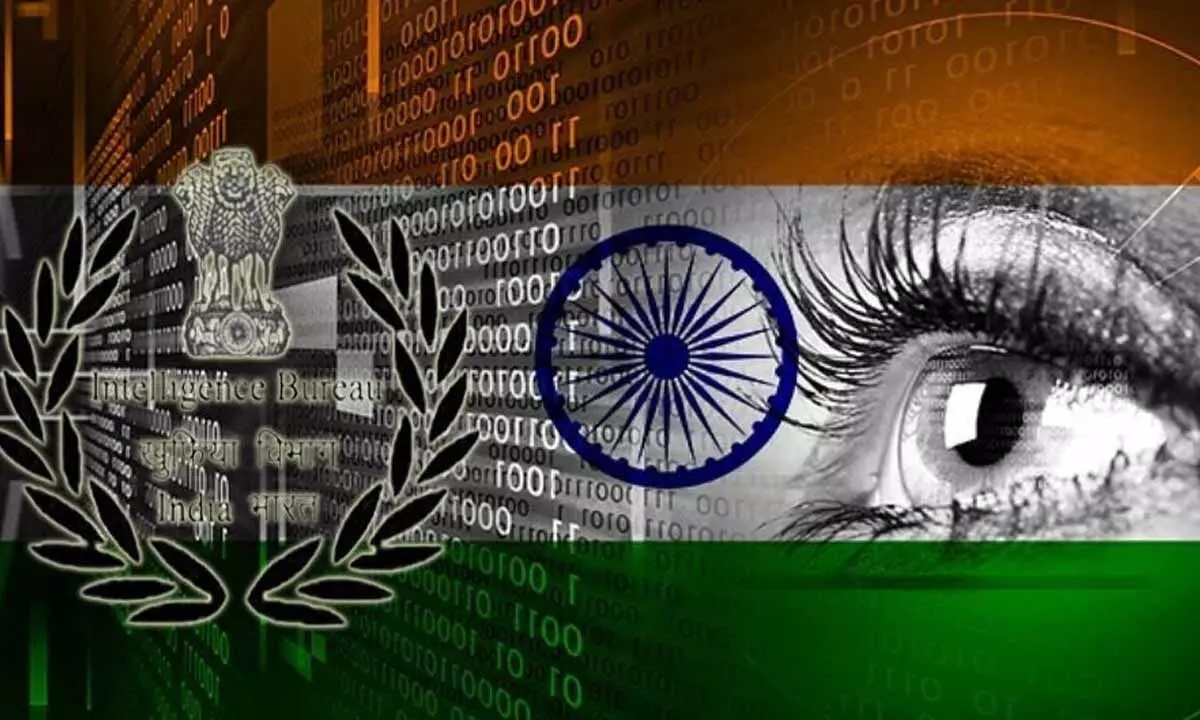
Various dynamics of intelligence
Security by definition is protection against 'covert' threats from an unseen enemy – an 'open' attack on our borders would be frontally repelled by our defence forces – and intelligence precisely is the information about the hidden plans of the adversary
Security by definition is protection against 'covert' threats from an unseen enemy – an 'open' attack on our borders would be frontally repelled by our defence forces – and intelligence precisely is the information about the hidden plans of the adversary. Intelligence hence is the anchor of security. India's Intelligence agencies have done a wonderful job of safeguarding national security with their somewhat limited resources – an important factor enabling them to always perform at their optimal best is the supreme dedication of the professionals manning them.
Long before books were written on management as a profession, India's Intelligence agencies had three basic principles of management built into their working – there would be no confusion about credit-sharing, the seniors would provide 'participative and nurtural' leadership to those working for them which would require knowing enough about the latter's concerns, if any, outside of the work place too and great reliance would be put on the concept that 'the individual was at the centre of all productivity.' The world scene changed drastically with the end of the Cold War consequent on the dismemberment of USSR that led to the emergence of a unipolar order dominated by the US. It so happened, however, that the threat of a new global terror arose from the same territory –Afghanistan – that had contributed to the demise of one superpower.
The rise of Islamic radicals pitted against the US during the 'war on terror,' revived the historical legacy of Jehad that the Wahhabis had launched in the nineteenth century against the Western encroachment on 'Muslim lands'.
However, because of the supportive role played by Pakistan in putting the Kabul Emirate of Taliban- Al Qaeda combine in power in 1996 and reinstalling it in August 2021, India has been facing the added danger of 'radicalisation' steered by the Pak ISI.
This country is already at the receiving end of cross-border terrorism in Kashmir and elsewhere in which Pakistan was for long using militant outfits of extremists raised and fostered by it – principally Hizbul Mujahideen and Jaishe Mohammad, besides the Saudi-funded Lashkar-e-Toiba. India is now exposed to the danger of Pakistan inducting Islamic radicals of Taliban, Al Qaeda and ISIS as well, in its covert offensive against this country.
Anti-India forces are harnessing civil society groups for alleging violation of human rights and particularly unequal treatment of minorities in India. Further, a new level of collusion between Pakistan and China has come into play in creating internal destabilisation here. In fact, more than the threat of war, India is facing an unprecedented threat to its 'internal' security from 'external' forces.
Since 'national security is inseparable from economic security,' the Intelligence agencies have to look out for any operations of India's adversaries and competitors using non-traditional channels like business entities, socio-cultural fronts and even technological interactions to gather information of Intelligence value about how India is doing. In the post-Cold War era, open warfare seemed to have given way to proxy wars and 'covert' offensives designed to weaken the target country. There is a paradigm shift in the way Intelligence agencies would now be required to expand their charter and take to more comprehensive ways of assisting those at the helm of governance, in handling both international relations and internal security.
Under the present Union Home Minister, internal security issues are being handled with a firm hand and the Ministry of Home Affairs has stepped up police modernisation in terms of improving connectivity of police stations across the country, strengthening the man power and the facilities needed by police forces and generally working for providing better leadership to the latter at all levels.
It was following the Kargil war that a committee headed by Dr K Subramaniam, former Chairman, JIC, examined the then security and Intelligence set-up of the country for possible improvements and expansion – its most important recommendations being the appointment of a National Security Advisor, establishment of a centralised communication and electronic Intelligence agency named National Technical Research Organisation and consolidation of military Intelligence by way of creation of a defence intelligence agency.
In these two decades since then, the security scenario for India has undergone major changes. In the Cold War era, our Intelligence agencies were devoting a major part of their resources to the study of international Communism and its bearing on India.
After Cold War ended with the dismemberment of USSR and the demise of International Communism, a major task of the agencies has been to cover the threat of terrorism in all its dimensions and produce ground level information needed for Intelligence-based counter-terror operations in Kashmir and elsewhere in India. Good Intelligence has helped minimise the collateral damage in these operations.
In recent years, the charter of our Intelligence agencies has expanded fast and there is added requirement of man power and resources for extending the human and technological outreach to new areas like 'Information Warfare,' cyber security, attacks on India's internal cohesion and stability, challenges pertaining to border management and the emerging threats to India's economic strength including our strategic establishments.
Also, the primacy of collation and analysis of total Intelligence at the national apex - from where integral responses to threats to our national security would also be directed - demands a new level of inter-agency cooperation and coordination between the Centre and the states.
A lot has already happened in the direction of consolidation of India's security set up and India's Intelligence agencies have fully measured up to the country's expectations with whatever resources had been made available to them.
It is a matter of great satisfaction that Prime Minister Narendra Modi and Home Minister Amit Shah have been taking great personal interest in the annual DGPs conference convened by Director of Intelligence Bureau and other meets called for deliberations on national security issues.
Intelligence agencies of the nation need all support from the regime at the top since national security and economic development are the two highest responsibilities – in that order – of the democratic state. Intelligence for national security is needed by the government regardless of the party label of those in power, because this function is clearly above politics.
The people of India always appreciate initiatives taken at the national level for strengthening the security of the nation against external and internal threats. Today, it is extremely important that awareness of national security perspectives is spread far and wide so that citizens can have the satisfaction of contributing to the national effort in this regard.
The Rashtriya Raksha University (RRU) established in 2020 at Gandhinagar, as an institution of national importance on the express desire of the Prime Minister, is a pioneering national security and police university of India pursuing the mission of extending this awareness in the academic world. RRU is committed to building national strategic and security culture through research and training, embracing security and military cadres as also the civilian society and it has already achieved remarkable success in this direction during the short period of its existence.
Also, there is need for taking security education to schools for students who are senior enough to grasp it - as part of civics and general knowledge. The National Security Advisory Board (NSAB) – the think-tank associated with the National Security Council – might be the appropriate forum where this could be discussed for evolving a simple but meaningful content as an add on to the school education.
(The writer is a former Director
of Intelligence Bureau)








